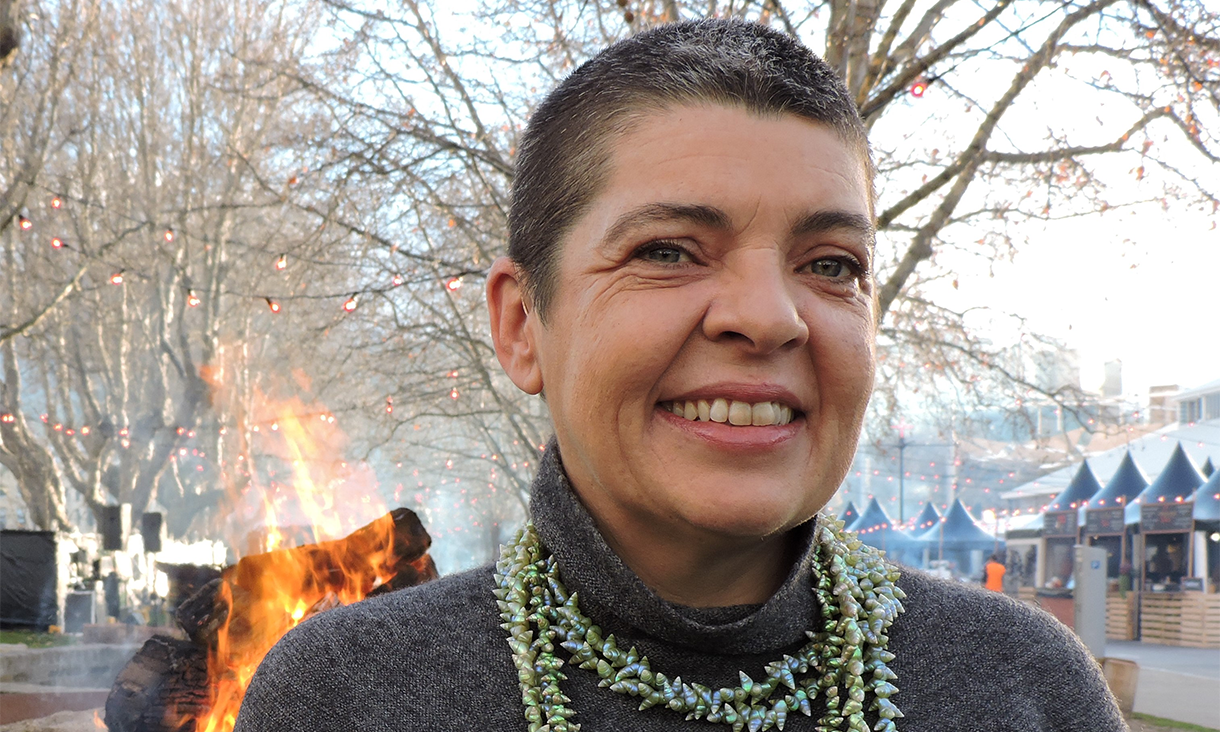Indigenous Voice: co-design for community representation

A webinar featuring Swinburne’s Dr Emma Lee from the Centre for Social Impact discussed the opportunities and challenges of an Indigenous Voice.
In summary
- Swinburne’s Moondani Toombadool Centre and the Centre for Social Impact have created a two-part webinar series to discuss the Indigenous Voice
- Indigenous Voice is a proposed body intended to offer a way for Indigenous Australians to provide formal advice to the parliament on Indigenous affairs
- All Australians can have a say on the Indigenous Voice through a consultation process closing on March 31 2021
Despite owning or managing almost 50 per cent of the continent, Indigenous Australians currently do not have a formal say over many government policies that affect them. In October 2019, the Minister for Indigenous Australians, Ken Wyatt, announced a proposed body, Indigenous Voice, to offer a way for Indigenous Australians to provide formal advice to the parliament on Indigenous affairs.
To help advance the co-design process for this voice and engage a wider audience, the Centre for Social Impact (CSI), in collaboration with Swinburne’s Moondani Toombadool Centre, recently hosted the first of a two-part webinar series with key members of the National Co-design Group for Indigenous Voice.
“When Indigenous and other Australians can work together with respect and inclusion for good policy and legislation, Australian democracy becomes fuller and richer for healthy future generations,” said Dr Emma Lee, Aboriginal and Torres Strait Islander Research Fellow, Centre for Social Impact Swinburne and member of the National Co-Design Group.
“Right now, we’re explaining what an Indigenous Voice is and how, as Australians together, we can co-design the process of Indigenous advice to government and parliament for mutual benefit.
“It is imperative that all Australians have confidence in the Indigenous-led process to create fairness and equity in how Indigenous lives and our issues are governed.”
Responding to the Indigenous Voice
The first webinar took place on March 9 2021, featuring National Co-Design Group co-chair Dr Donna Odegaard AM and fellow National Co-Design Group members, former Premier of Victoria Jeff Kennett AC, and CSI Swinburne’s Dr Lee as panellists.
The lively discussion, moderated by Aboriginal and Torres Strait Islander Research Fellow from the Moondani Toombadool Centre, Dr Sadie Heckenberg, delved into the co-design process, its importance and how people could get involved.
“We're so tied up in the art of governing, but sometimes we forget why we're actually doing it,” said Dr Lee.
“Other people who have made decisions for us, with the best of intentions…it hasn't worked. We need to have our own say.
“I want to be able to take to parliament this beautiful community moment of people of Australia working together for our future generations.”
Mr Kennett said that Indigenous Voice was an opportunity to correct misunderstandings about Aboriginal and Torres Strait Islander communities and governance. He said the recent plebiscite on same-sex marriage showed that the Australian public are open to education and change.
“[Indigenous Voice] is a natural step towards a better understanding between both Indigenous and non-Indigenous Australians,” he said.
“It's not only educating our politicians, but it's also educating our public. And as we educate, we might change. We change environments, we change minds, which means that then we have the opportunity to change the outcomes of our young ones that may be suffering…and that's incredibly, incredibly important.”
Dr Odegaard stressed the breadth and depth of conversation that had already been undertaken, but the importance of what was still to come.
“The work over the past year or so has been monumental, to say the least. Now we are putting ourselves out there, encouraging everyone to have a say,” she said.
“We can't do that without looking at our past and looking at what we're dealing with now in order to take this forward. So, it's a journey that we're still on.”
All Australians can now have a say on the Indigenous Voice through a consultation process that is open until March 31 2021.
Registrations for the second webinar on May 4 2021 are now open.
About reconciliation at Swinburne
Swinburne was the first Australian university to achieve Elevate status for its Reconciliation Action Plan (RAP) and continues to provide leadership on Indigenous matters and reconciliation through the Moondani Toombadool Centre.
Swinburne strongly supports the Uluru Statement from the Heart, with its calls to enshrine a First Nations Voice to Parliament in the Constitution, and to establish a Makarrata Commission to oversee processes on agreement-making and truth-telling.
Connect with Swinburne’s Moondani Toombadool Centre for all Indigenous matters or download a copy of the 2020-23 Elevate Reconciliation Action Plan.
-
Media Enquiries
Related articles
-

- Social Affairs
Online child sexual exploitation is a rising but misunderstood threat. Here's what the experts want you to know.
Swinburne’s Centre for Forensic Behavioural Science is working to reduce the serious crime that impacts the victims for life, filling in major knowledge gaps on who perpetrates online child sexual exploitation.
Wednesday 05 November 2025 -

- Social Affairs
Older Australians living in private rentals disproportionately exposed to housing precarity
New Swinburne research reveals older Australians living in private rentals are disproportionately exposed to housing precarity.
Monday 24 November 2025 -

- Sustainability
Threatened by a damning climate future, women in leadership could save Australia’s tourism and hospitality sector, research finds.
New Swinburne research found that women leaders aid better environmental policies, resource use, lower emissions, and drive environmental innovation..
Monday 13 October 2025 -

- Astronomy
Indigenous students explore the cosmos through Swinburne’s astrophysics program
Indigenous students explored astrophysics at Swinburne, connecting science and culture while building pathways to future careers in STEM.
Friday 19 September 2025 -

- Social Affairs
- University
Celebrate Pride at Swinburne
Swinburne’s annual Pride Week celebrates the connection and community offered on campus, where every student, staff, alum and partner is welcome.
Monday 11 August 2025

